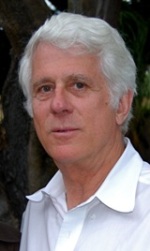

Home • December 4th and 5th, 2009 Agendas • May 8th and 9th, 2009 Agendas
Participant Profiles |
|
 |
 |
Amanda Agan Ph.D. Candidate, Economics - Presenter, Session 2: "Personality and Crime" The Effects of Personality and Cognitive Measures on Crime and Deviance. From the Web Appendix for
The Relevance of Personality Psychology for Economics. Draft, November 2010. Amanda Agan is a 4th year Ph.D. student in the department of economics at the University of Chicago. Her research focuses on empirical labor economics with a specific focus on crime, early childhood interventions, and neighborhood effects. She recently wrote an appendix section that reviews the literature on the correlations between personality measures and crime for the Almlund et al Handbook Chapter The Relevance of Personality Psychology for Economics. Current research focuses on the effect of cognitive and noncognitive skills on criminal outcomes using longitudinal data (the CNLSY) as well as evidence from two randomized early childhood interventions. |
 |
Mathilde Almlund Ph.D. Candidate, Economics - Presenter, Session 6: "Personality and Preference Parameters" |
 |
Daniel Benjamin Assistant Professor of Economics Ph.D., 2006 (Economics) - Harvard University - Discussant, Session 1 Who is “Behavioral”? Cognitive ability and anomalous preferences. Harvard University mimeo (May 2006). Dan Benjamin is a behavioral economist: his research incorporates ideas and methods from psychology into economic analysis. Some current work includes an empirical investigation of the extent to which people seek to maximize their own happiness, and a theoretical analysis of how individuals' concern for fairness affects the efficiency of economic exchange. Ongoing work addresses how economic preferences are influenced by psychological/biological factors such as cognitive ability, social identity (ethnicity, race, gender, and religion), and specific genes. |
 |
Dan Black Professor & Deputy Dean, Harris School Ph.D., 1983 (Economics) - Purdue University |
 |
Clancy Blair Professor of Applied Psychology Ph.D., 1996 (Developmental Psychology) - University of Alabam, Birmingham |
Lex Borghans Professor of Economics and Business Administration Ph.D., 1983 (Economics) - Maastricht University - Presenter, Session 5: "IQ, Personality and Achievement" Lex Borghans is a Labor Economics and Social Policy Professor at Maastricht University. He conducts research for several ministries and the European Commission. His field of interests include human capital, labor economics and the economics of education. Some of his current research deals with the consistency of education, which envisions a student’s education as being an investment towards his/her future, as well as to the country’s labor market. Recent publications include the 2009 “Gender Differences in Risk Aversion and Ambiguity Aversion” in the Journal of the European Economic Association, which he wrote with Bart Golsteyn, James Heckman, and Huub Meijers. |
|
Turhan Canli Associate Professor of Psychology Ph.D., 1993 (Psychobiology) - Yale University - Presenter, Session 3: "Critical Steps in Linking Genes to Brains to Behavior" Turhan Canli is a Professor of Bio-Psychology and the Senior Fellow at the Center for Medical Humanities, Compassionate Care and Bioethics at Stony Brook University. His fields of research include Molecular Psychology, Personality and Social Neuroscience, Political Genomics, Neuroethics and Global Issues such as Microcredits, Child Soldiers and Mental Health. Dr. Canli researches the hormonal regulation of brain responses to emotional stimuli. Recently, he received the 2008 James McKeen Cattell Sabbatical Award from the Cattell Fund and Association for Psychological Science. |
|
 |
Dan Cervone Professor of Psychology Ph.D., 1986 (Psychology) - Stanford University Dan Cervone is a Psychology Professor at the University of Illinois at Chicago. His current research investigates the social-cognitive processes in personality functioning. His research interests include motivation, goal-setting, personality, individual differences, self and identity, and social cognition. More specifically, he explores the way in which a person tends to exhibit relatively consistent patterns of experience and action across diverse life circumstances. A recent publication of Professor Cervone is the 11th edition of Personality: Theory and research, which he co-wrote with Lawrence A. Pervin. |
 |
Benjamin Chapman Assistant Professor of Psychiatry Ph.D., 2005 (Psychology) - University of North Texas - Presenter, Session 7: "Personality and Prevention in Public Health" Personality-Informed Prevention and Intervention for Healthy Aging. Draft, November 17, 2010. Personality, Socioeconomic Status, and All-Cause Mortality in the United States. American Journal of Epidemiology 171:1 (January 2010) 83-92. Benjamin Chapman is an Assistant Professor in Psychiatry at the University of Rochester Medical Center. His K08 Mentored Clinical Scientist award fron NIA focuses on the role of personality in socioeconomic health disparities, and on quantitative methods in health and behavioral sciences. Recent papers dealing with personality and health have appeared in the American Journal of Epidemiology, Journal of Personality and Social Psychology, and JAMA. |
 |
Soo Hong Chew Chair Professor of Economics Ph.D., 1981 (Mathematics, Economics, and Management Science) - University of British Columbia - Presenter, Session 3: "Modeling Decision Making Under Risk Using Neurochemistry" Modeling Decision Making Under Risk Using Neurochemistry. Draft, 2010. Abstracts from Working Papers, 2009-2010 Soo Hong Chew is a Chair Professor in the Economics Department and the co-director of the Center for Experimental Research at the Hong Kong University of Science and Technology. Since 2004, upon receiving the Emerging High-Impact Area Research Grant, he has been exploring the neuroeconomics of decision making. He is also one of the authors of the forthcoming study, “A Neurochemical Approach to Valuation Sensitivity over Gains and Losses” which is to be published in the Proceedings of the Royal Society B: Biological Sciences. |
 |
Deborah Cobb-Clark Professor of Economics Ph.D., 1990 (Economics) - University of Michigan - Presenter, Session 2: "The Links Between Personality and Labor Market Outcomes" Locus of Control and Job Search Strategies. Working Paper, November 19, 2010. Do Psychosocial Traits Help Explain Gender Segregation in Young People's Occupations? Working Paper, September 30, 2010. Noncognitive Skills, Occupational Attainment, and Relative Wages. Working Paper, July 27, 2010. Are Young People's Educational Outcomes Linked to their Sense of Control? IZA Discussion Paper No. 4907, April 2010. Professor Deborah Cobb-Clark has recently been appointed Director of the Melbourne Institute and Ronald Henderson Professor at the University of Melbourne. She earned a Ph.D. in economics from the University of Michigan (1990) and has held previous positions at the US Labor Department, Illinois State University, and the Australian National University. Professor Cobb-Clark is the founding director of The Social Policy Evaluation, Analysis and Research (SPEAR) Centre, has been Associate Director of the Research School of Social Sciences at the ANU, and is a former co-editor of the Journal of Population Economics. She is an elected Fellow of the Academy of Social Sciences in Australia. Her research agenda centres on the effect of social policy on labour market outcomes including immigration, sexual and racial harassment, health, old-age support, education and youth transitions. In particular, she is currently leading the innovative Youth in Focus Project which is analysing the pathways through which social and economic disadvantage is transmitted from parents to children in Australia. She has published more than four dozen academic articles in leading international journals such as American Economic Review, Journal of Labor Economics, Journal of Human Resources, Journal of Economic Behavior and Organization, Industrial and Labor Relations Review, and Labour Economics. |
 |
Gabriella Conti Postdoctoral Scholar, Economics Ph.D., 2008 (Economics) - University of Essex - Presenter, Session 2: "The Education-Health Gradient" Understanding the Early Origins of the Education-Health Gradient: A Framework That Can Also Be Applied to Analyze Gene–Environment Interactions. Perspectives on Psychological Science 5:5 (October 2010) 585–605. The Education-Health Gradient. American Economic Review 100 (May 2010) 234-238. |
 |
Flavio Cunha Assistant Professor of Economics Ph.D., 2007 (Economics) - University of Chicago - Presenter, Session 4: "Dynamics of Skill Formation" Flavio Cunha is an Assistant Professor of Economics at the University of Pennsylvania. For several years, he has collaborated with Professor Heckman. Recently, they co-authored an article, “Investing in Our Young People” which was published in the National Bureau of Economic Research. |
Thomas Dohmen Professor of Education and the Labor Market Ph.D., 2003 (Economics) - Maastricht University - Presenter, Session 6: "Causality, Stability and Measurement Issues with Reference to Economic Preferences and Personality" Thomas Dohmen is the Director of the Research Centre for Education and the Labor Market and a Professor at Maastricht University. He is also a Board Member of the University’s Limburg Institute for Business and Economic Research foundation and a Research Fellow at the Institute for the Study of Labor in Bonn (Germany). His research explores life-cycle formation of cognitive and non-cognitive skills, psychology of incentives, personnel and organizational economics, behavioral economics, experimental economics, as well as applied microeconometrics. In 2010, the American Economic Review presented Professor Dohmen with the Excellence in Refereeing Award. |
|
 |
M. Brent Donnellan Assistant Professor of Psychology Ph.D., 2001 (Human Development) - University of California, Davis - Discussant, Session 4 Personal Characteristics and Resilience to Economic Harship and Its Consequences: Conceptual Issues and Empirical Illustrations. Journal of Personality 77:6 (December 2009), 1645-1676. M. Brent Donnellan is an Associate Professor in Psychology at Michigan State University. He is currently on the editorial board of The Personality and Social Psychology Bulletin. For the last several years he has been teaching undergraduate and graduate courses on personality, developmental psychology (adolescence through young adulthood), personality development, close relationships, research design and measurement, and research methods in social and personality psychology. |
Pia Dovern-Pinger Ph.D. Candidate, Economics - Presenter, Session 2: "Maintaining (Locus of) Control? Assessing The Impact of Locus of Control on Education Decisions and Wages." Maintaining (Locus of) Control? Assessing the impact of locus of control on education decisions and wages. Working paper, 2010. Pia Dovern-Pinger is currently a Ph.D. candidate at the Center for Doctoral Studies in Economics at the University of Mannheim. Previously, she studied economics at Maastricht University and Sciences Po in Paris. After graduating in 2006, Dovern-Pinger pursued her studies at the Kiel Institute for the World Economy. Her research interests include labor economics, human capital formation, noncognitive skills and international migration. |
|
 |
Angela Duckworth Assistant Professor of Psychology Ph.D., 2006 (Psychology) - University of Pennsylvania - Organizing Committee What No Child Left Behind Leaves Behind: The Roles of IQ and Self-Control in Predicting Standardized Achievement Test Scores and Report Card Grades. Draft, 2010. Angela Duckworth is an Assistant Professor in Psychology at the University of Pennsylvania. In 2009, she received the Mentored Research Scientist Development Award in order to study self-control from the perspectives of economics and psychology. She also received the National Science Foundation Graduate Fellowship. Professor Duckworth co-authored the forthcoming manuscript. This past October, the World Bank Workshop on Employment and Productivity invited her to present her research on non-cognitive skills. |
 |
Steven Durlauf Kenneth J. Arrow Professor of Economics Ph.D., 1986 (Economics) - Yale University - Discussant, Session 1 Identification of Social Interactions. Prepared for the Handbook of Social Economics, July 26, 2010.
Steven N. Durlauf is Kenneth J. Arrow and Laurits R, Christensen Profeesor of Economics at the University of Wisconsin at Madison. He is a Fellow of the Econometric Society and a Research Asscoiate of the National Bureau of Economic Research. For two years, he served as Progam Director for the Economics Program of the Santa Fe Institute. Durlauf has worked extensively on theoretical and econometric issues involving the analysis of inequality, social determinants of behavior, economic growth and policy evaluation. He was general editor of the most recent edition of the New Palgrave Dictionary of Economics and coedited the Handbook of Economic Growth. He received his BA in Economics from Harvard and his PhD in Economics from Yale. |
 |
Richard Ebstein Professor of Psychology - Presenter, Session 3: "Modeling Decision Making Under Risk Using Neurochemistry" Modeling Decision Making Under Risk Using Neurochemistry. Draft, 2010. Abstracts from Working Papers, 2009-2010 Richard Ebstein is a Professor of Psychology and the Head of the Scheinfeld Center for Genetic Studies in the Social Sciences at Hebrew University in Jerusalem. His research in human molecular genetics for the past five years has focused on the role of two nonapeptides, oxytocin and vasopressin, on human social behavior. His group has explored their role in both normal behavior and in disorders of social deficit especially autism. He and his group have published two key genetic papers, on oxytocin and one on vasopressin, in Molecular Psychiatry. |
 |
Armin Falk Director of the Center for Economics and Neuroscience Ph.D., 1999 (Economics) - University of Zurich - Presenter, Session 6: "Causality, Stability and Measurement Issues with Reference to Economic Preferences and Personality" Armin Falk is the Director of the Center for Economics and Neuroscience and a Professor of Economics at the University of Bonn. In 2008, he received a five-year grant from the European Research Council (ERC). Professor Falk’s forthcoming article “The Intergenerational Transmission of Risk and Trust Attitudes," which he co-wrote with Thomas Dohmen, David Huffman and Uwe Sunde, is to be published in The Review of Economic Studies. In 2010, he was an Invited Lecturer at the MOVE (Markets, Organizations and Votes in Economics) Conference on Gender Differences in Competitiveness and Risk Taking in Barcelona. Professor Falk has taught courses on economic theory, theory of the firm, labor markets, microeconomics, and game theory. |
 |
David C. Funder Distinguished Professor of Psychology Ph.D., 1979 (Psychology) - Stanford University - Presenter, Session 1: "Realism About Traits" Persons, behaviors and situations: An agenda for personality psychology in the postwar era. Journal of Research in Personality 43 (2009), 120-126. Global Traits: A Neo-Allportion Approach to Personality. Psychological Science 2:1 (January 1991), 31-39. David C. Funder is a Distinguished Professor of Psychology at the University of California in Riverside. Professor Funder’s current research has three main emphases: accuracy of personality judgment, situational assessment and behavioral correlates of personality and health over time. His research is based on “the judgments of personality made both by psychologists and by “real people” particularly under circumstances where these judgments are most “likely to be accurate.” Currently, Professor Funder’s article, “Towards a balanced social psychology: Causes, consequences, and cures for the problem-seeking approach to social behavior and cognition” which he co-wrote with Joachim Krueger is in press and published in Behavioral and Brain Sciences. |
 |
Miriam Gensowski Ph.D. Candidate, Economics Miriam Gensowski is a Ph.D. candidate in Economics at the University of Chicago. She was a teaching assistant for graduate and undergraduate courses in the university's Economics Department for "Life Cycle Dynamics and Inequality" with Professor James J. Heckman, "Analysis of Microdata I, II, III" with Professors Jeffrey Grogger, Dan Black, Robert J. LaLonde, and James J. Heckman, and "Introduction to Microeconomics" with Allen Sanderson. She was also Professor James Heckman’s research assistant from 2006 to 2007 and during that time researched the quantitative analysis of early childhood interventions in Chicago Child-Parent-Centers. Currently, she is doing research on the rate of return to education, based on complete earnings histories of high-ability individuals, with Peter Savelyev and Professor Heckman. |
 |
Bart Golsteyn Assistant Professor of Economics Ph.D., 2007 (Economics) - Maastricht University - Presenter, Session 5: "IQ, Personality and Achievement" Bart Golsteyn is an Assistant Professor in Economics, tenured as of 2010, at the University of Maastricht. In 2010, he received a three year Tore Browaldh Grant from the Handelsbanken Research Foundation. He is involved in research that explores behavioral economics, education, health and labor. Most recently he co-wrote with Lex Borghans, James J. Heckman, Huub Meijers, “Gender Differences in Risk Aversion and Ambiguity Aversion,” which was published in 2009 in the Journal of the European Economic Association. In 2011, Professor Golsteyn is scheduled to speak at the American Economic Association in Denver, Colorado. |
Peter Gottschalk Professor of Economics Ph.D., 1973 (Economics) - University of Pennsylvania - Presenter, Session 7: "Can Work Alter Welfare Recipients' Beliefs?" Peter T. Gottschalk is an Economics Professor at Boston College. He has been a research fellow at the University of Bonn since 2003, and has been a research associate at the University of Wisconsin’s Center for the Study of Poverty since 2006. Professor Gottschalk was the Co-Editor of the Journal of Human Resources from 1986 to1990 and on the Editorial Board of the Review of Income and Wealth from 1996 to 2000. He co-wrote with Helen Connolly and Katherine Newman, “The National Picture,” which was the fifth chapter of Chutes and Ladders, published in 2006 by Harvard University Press and Russell Sage Foundation. In 2009, he presented a paper at the Conference on Income and Earnings Dynamics at Maaymnooth University in Ireland. |
|
 |
James Heckman Henry Schultz Distinguished Service Professor of Economics Ph.D., 1971 (Economics) – Princeton University - Organizing Committee Personality Psychology and Economics. Draft, December 5, 2010. Econometric Causality. International Statistical Review 76:1 (2008) 1-27. The Principles Underlying Evaluation Estimators with an Application to Matching.” Les Annales d’Economie et de Statistique 91-92 (2008) 9-74. James J. Heckman is the Henry Schultz Distinguished Service Professor of Economics at the University of Chicago, where he has taught since 1973. In 2000, he won the Sveriges Riksbank Prize in Economic Sciences in Memory of Alfred Nobel. Heckman directs the Economics Research Center and the Center for Social Program Evaluation at the Harris School for Public Policy. In addition, he is a Professor of Science and Society at the University College Dublin and a Senior Research Fellow at the American Bar Foundation. His work has been devoted to the development of a scientific basis for economic policy evaluation. Heckman is actively researching the economics of human development and building theoretical and empirical models of human capacity formation. This work emphasizes the role of the family and the effects of education, wages, health, crime, and other dimensions of lifetime achievement. He is currently conducting social experiments on early childhood interventions. |
 |
Patrick Hill Postdoctoral Scholar, Social-Personality Division Ph.D. – University of Notre Dame Patrick Hill is a Post Doctorate fellow at the University of Illinois in Urbana Champaign. He received a Ph.D. in psychology from the University of Notre Dame. His research investigated the way in which conscientious people interpreted the world differently by having access to schemas to which others did not. Previously, he examined “the relationship between decision-making and self-perceptions or beliefs, including a project that documented that adolescents take risks because they perceive themselves as being invulnerable.” His interest lies on teenage and emerging adulthood development. |
 |
Moshe Hoffman Post-Doctoral Research Scientist in the Rady School of Management Biological Basis of Sex Differences in Risk Aversion and Competitiveness. Draft, December 5, 2010. Left Handed Women are More Competitive than Right Handed Men: On the Biological Basis of Gender Differences in Competitiveness. Draft, December 5, 2010. Height and Competitiveness. Draft, August 21, 2010. |
 |
John Eric Humphries Post-Collegiate Research Assistant - Presenter, Session 5: "IQ, Personality and Achievement"
John Eric Humphries is a post-collegiate research assistant for the University of Chicago Economics Department. Working with Professor Heckman, his research interests included educational choice, the origins of inequality, and modeling the role of personality in social and economic outcomes. He graduated with honors from the University of Chicago in 2009 with a degree in Economics. |
 |
Joshua Jackson Graduate Student, Social-Personality Division - Presenter, Session 7: "Can We Teach an Old Dog New Tricks? Cognitive training increases openness to experience in older adults." Joshua Jackson is a graduate student at the University of Illinois in Urbana-Champaign’s Division of Social-Personality. His interests include Ppersonality development, gene-environment interplay, behavioral manifestations of personality, personality-health relationships, longitudinal methods, and psychometrics. |
Timothy Kautz Ph.D. Candidate, Economics - Presenter, Session 2: "The Predictive Power of Personality for Labor Market Outcomes: A Review and Suggestions for Future Research" Web Appendix for The Relevance of Personality Psychology for Economics. Draft, November 2010. Tim Kautz is a graduate student in the Department of Economics at the |
|
 |
Peggy Kern Postdoctoral Fellow, Psychology Peggy Kern's research incorporates a lifespan perspective and advanced quantitative techniques (growth curve analyses, structural equation modeling, survival analyses, and integrative data analyses) to explore mechanisms linking personality and longevity, patterns of physical activity, and the interaction of personality and social factors on trajectories of activity and health across the lifespan. She has recently co-authored papers in Social and Personality Psychology Compass, Health Psychology, Personality and Social Psychology Bulletin, Journal of Personality Research, and Annals of Behavioral Medicine, as well as several chapters on these issues. A summa cum laude graduate from Arizona State University, she recently received her doctorate in psychology from the University of California, Riverside, and is currently a postdoctoral fellow at the University of Pennsylvania. |
Jin-Kyung Kim Associate Research Fellow, Policy Research Team |
|
 |
Bob Krueger Hathaway Distinguished Professor of Clinical Psychology, Personality Psychology, and Differential Psychology/Behavior Genetics Ph.D., 1996 (Psychology) – University of Wisconsin at Madison - Presenter, Session 3: "Psychopathology, Personality and Genetics" How Money Buys Happiness: Genetic and Environmental Processes Linking Finances and Life Satisfaction. Journal of Personality and Social Psychology 90:4 (2006), 680-691. Higher Perceived Life Control Decreases Genetic Variance in Physical Health: Evidence From a National Twin Study. Journal of Personality and Social Psychology 88:1 (2005), 165-173. Robert Krueger is a Hathaway Distinguished Professor of Clinical Psychology, Personality Psychology, and Differential Psychology / Behavior Genetics at the University of Minnesota. His research investigates why “some people experience psychopathology, while others remain resilient.” Professor Krueger claims that his work “relates to the development of empirically-based models of individual difference” which is a domain, he believes, “that underlie[s] tendencies to develop psychopathology.” His most recent study, “Contrasting prototypes and dimensions in the classification of personality pathology: Evidence that dimensions, but not prototypes, are robust” in which he is one of the authors, is in the process of being published by Psychological Medicine. |
 |
Nathan Kuncel Marvin D. Dunnette Distinguished Professor in Industrial and Organizational Psychology Ph.D., 2003 (Psychology ) – University of Minnesota - Presenter, Session 2: "The Relationship Between Personality Traits and Success in Post-Secondary Education and Work" Nathan Kuncel is an Associate Professor of Psychology at the University of Minnesota. His research explores the structure and prediction of performance in academic and work settings and the validity of individual differences for predicting different aspects of performance. Specifically, he examines the use of standardized tests (e.g., SAT, GRE, GMAT, PCAT, MAT), prior accomplishments (e.g., high school rank, extra-curricular accomplishments), and personality traits for predicting academic performance in college and graduate school. |
| Jeong-Rim Lee Korean Institute of Child Care and Education (KICCE) Associate Research Fellow, Policy Research Team Ph. D., 2005 (Educational Psychology) -Texas Tech University |
|
 |
Nicholas Mader University of Chicago Postdoctoral Scholar, Economics Ph.D., 2009 (Economics) - University of Wisconsin Nicholas Mader is a post-doctoral scholar working with Professor James Heckman at the Economic Research Center at the University of Chicago. His current work is focused on returns to educational programs for disadvantaged youth, focusing on the General Education Development test (GED). In particular, he studies the role of cognitive and non-cognitive ability in life cycle models of how individuals make educational attainment decisions and in later-life economic and social outcomes, and evidence of how the weight that employers in different labor markets put on employee credentials versus ability changes as they learn about their employees on the job. Curriculum Vitae |
 |
Dan McAdams Department Chair and Professor of Psychology Ph.D., 1979 (Psychology and Social Relations) – Harvard University - Discussant, Taking Stock Personality Development: Continuity and Change Over the Life Course. Annual Review of Psychology 61 (2010), 517–42. The Redemptive Self: Stories Americans Live By. Oxford: Oxford University Press, 2006. Foley Center Dan P. McAdams is the Chair of the Psychology Department at Northwestern University, Evanston, IL. He is also Professor of Psychology and Professor of Human Development and Social Policy. Honored as a Charles Deering McCormick Professor of Teaching Excellence at Northwestern, Professor McAdams teaches courses in Personality Psychology, Adult Development and Aging, Theories of Personality and Development, and the Psychology of Life Stories. Professor McAdams works in the areas of personality and life-span developmental psychology. His theoretical and empirical writings focus on concepts of self and identity in contemporary American society and on themes of power, intimacy, redemption, and generativity across the adult life course. Professor McAdams is most well-known for formulating a life-story theory of human identity, which argues that modern adults provide their lives with a sense of unity and purpose by constructing and internalizing self-defining life stories or “personal myths.” Beginning in 1997, he continues to be funded by the Foley Family Foundation to establish the Foley Center for the Study of Lives at Northwestern University. Professor McAdams is also the author of a leading college textbook in personality psychology, The Person (Wiley).His work has been featured in many national publications and media outlets including the New York Times, the New Yorker, Wall Street Journal, USA Today, Newsweek, Psychology Today, Self magazine, and Good Morning America. He lives in Wilmette, IL, with his wife, the Hon. Rebecca R. Pallmeyer. |
 |
Peter Molenaar Professor of Human Development Ph.D., 1981 (Social Sciences) – University of Utrecht - Presenter, Session 4: "Some Implications of (Non-)ergodicity of Psychological Processes" Peter C.M. Molenaar is Professor of Human Development, Department Human
Development and Family Studies, The Pennsylvania State University. The general
theme of his work involves application of mathematical theories in the following
fields of research: application of singularity theory (in particular catastrophe theory)
to study developmental stage transitions; application of nonlinear signal analysis
techniques to map theoretical models of cognitive information-processing onto
dynamically interacting neural sources; application of ergodic theory to study the |
Seong Moon Ph.D. Candidate, Economics - Presenter, Session 7: "The Effects of Early Intervention on Human The Rate of Return to the HighScope Perry Preschool Program. Journal of Public Economics 94 (2010) 114–128. |
|
 |
Dan Mroczek Professor of Developmental Studies Ph.D., 1992 (Developmental Psychology) – Boston University - Presenter, Session 2: "Personality and Prediction of Mortality" Do health behaviors explain the effect of neuroticism on mortality? Longitudinal findings from the VA Normative Aging Study. Journal of Presearch in Personality 43 (2009) 653-659. Personality Change Influences Mortality in Older Men. Psychological Science 18:5 (2007) 371-376. Modeling Intraindividual Change in Personality Traits: Findings From the Normative Aging Study. Journal of Gerontology: Psychological Sciences 58B:3 (2003) P153-P165. Dan Mroczek is Professor in the Department of Child Development & Family Studies at Purdue University, with a courtesy appointment in the Department of Psychological Sciences. He has been at Purdue since 2005, after spending 10 years on the faculty of Fordham University in New York City. Prior to that appointment, he was a postdoctoral fellow at the University of Michigan. Prior, he was a doctoral student at Boston University, where he received a Ph.D. in 1992. He received his B.S. from Loyola University Chicago. His primary research interests are in the area of personality and health, as well as personality development. He is particularly interested in the mechanisms that connect personality to health and longevity, and on how personality change influences physical health. One of the main findings from his research over the past few years is that there are individual differences in personality trajectories over long periods of time (10 to 20 years). This means that not everyone shows the same pattern of personality change as we grow older. He is interested in why people vary on these long-term trajectories and how it affects their physical health. Additionally, he has a number of statistical and methodological interests such as longitudinal design, psychometrics, multilevel modeling (including growth-curve models), and proportional hazards models. Most of his research has received funding by the National Institutes of Health (NIH), in particular the National Institute on Aging (NIA). |
 |
Remi Piatek Postdoctoral Scholar, Economics Ph.D., 2010 (Quantitative Economics and Finance) – University of Konstanz - Presenter, Session 2: "Constructing Economically Justified Aggregates: An Application to the Early Origins of Health" Remi Piatek is a Postdoctoral Scholar at the University of Chicago, where he is currently working in collaboration with Professors James Heckman and Hedibert Lopes. He obtained is Ph.D. in Economics at the University of Konstanz (Germany) in 2010. His fields of interests include Bayesian econometrics, latent variable models, with an application to the formation of cognitive and noncognitive skills and their impact on education and labor market outcomes. |
Rodrigo Pinto Ph.D. Candidate, Economics - Discussant, Session 4 Analyzing social experiments as implemented: A Reexamination
|
|
 |
William Revelle Professor of Psychology Ph.D., 1973 (Psychology) – University of Michigan - Presenter, Session 1: "Personality, It's More Than You Think. Exploring Temperament, Ability, Interests and Character" Individual Differences and Differential Psychology: A Brief
History and Prospect. From Handbook of Individual Differences, Tomas Chamorro-Premuzic, Adrian Furnham and Sophie von Stumm (Eds.) Forthcoming. William Revelle has been a professor of psychology at Northwestern University since 1973 where hs directs the graduate program in personality psychology. His teaching and research emphasizes that personality is the last refuge of the generalist in psychology and that personality theorists need to collaborate with cognitive, social, clinical and biologically oriented psychologists. His research ranges from developing new psychometric algorithms to the interative effect of personality, time of day and caffeine on cognitive performance. He is a former president of the Association of Research in Personality, the International Society for the study of Individual Differences, and the Society for Multivariate Experimental Psychology. He is the current chair of the Governing Board of the Bulletin of Atomic Scientists. |
 |
Brent Roberts Professor of Psychology Ph.D., (Personality Psychology) – University of California, Berkeley - Organizing Committee Brent Roberts is a Professor of Psychology in the Department of Psychology at the University of Illinois, in the Social-Personality-Organizational Division. Recently Professor Roberts received the Diener Mid-Career award in Personality Psychology from the Foundation for Personality and Social Psychology, the Theodore Millon Mid-Career award in Personality Psychology from the American Psychological Foundation, and was appointed as a Richard and Margaret Romano Professorial Scholar at the University of Illinois. He has served as the Associate Editor for the Journal of Research in Personality, as a member-at-large for the Association for Research in Personality. He is currently the Executive Officer for the Association for Research in Personality, and serves on the Editorial Board of the Journal of Personality and Social Psychology, International Journal of Selection and Assessment, Personality and Social Psychology Review, and Perspectives on Psychological Science. Dr. Roberts’s primary line of research is dedicated to understanding the patterns of continuity and change in personality in adulthood and the mechanisms that affect these patterns, with a particular focus on the development of conscientiousness. Dr. Roberts has a second line of research on personality assessment, which includes studies focusing on the meaning and scope of conscientiousness, the relationship between conscientiousness and the health process, the utility of contextualized assessments of personality, and the use of IRT in personality assessment. |
 |
Rick Robins Professor of Psychology Ph.D., 1995 (Psychology) – University of California, Berkeley Richard Robins is a Psychology Professor at the University of California Davis. From 2002 to 2007, he received the university’s Chancellor’s Fellowship. Over the next five years, he will be the principal investigator in the study, “Mexican family culture & substance use risk & resilience” at the National Institute of Drug Abuse. |
 |
Peter Savelyev Ph.D. Candidate, Economics Peter Savelyev is a Ph.D. Candidate in Economics at the University of Chicago and a research assistant to Professor James Heckman. His primary research interests are in the field of health economics and the emerging field of the economics of human development. His job market paper, “Conscientiousness, Education, and Longevity of High-Ability Individuals,” combines these two fields, bridging health economics and personality psychology in order to address one of the key questions in the health-as-human-capital literature: does education causally affect longevity. His secondary research interest lies in stud ng specific informal markets of transition economies that substantially affect the performance of their health care systems. In a paper in progress, he investigates the problem of widespread informal payments from patients to doctors, which are typical in public clinics of transition economies. Peter Savelyev has been working with James Heckman, Rodrigo Pinto, Seong Moon, and Adam Yavitz on a reanalysis of the Perry Preschool Project and has published papers in the Journal of Quantitative Economics and the Journal of Public Economics. Another paper on the Perry Preschool Project has “revise and resubmit” status with the American Economic Review. Apart from the largely completed Perry Preschool project, Peter is working on two other projects. A paper in progress co-authored with Miriam Gensowski and James Heckman estimates the internal rate of return to education for men and women of the Terman sample. Another paper in progress based on the Fast Track data is part of a growing collaboration between the Economics Research Center at the University of Chicago and the Center for Child and Family Policy at Duke University. The aim of this collaboration is to establish mechanisms of remediating anti-social traits. |
 |
Daniel Schunk Assistant Professor of Economics Ph.D., 2006 (Economics) – University of Mannheim Daniel Schunk is an assistant professor at the University of Zurich/Switzerland. He is a behavioral and experimental economist with a special interest in issues related to the economics of health and education as well as survey research and methodology. Some current work includes an empirical investigation of the link between child health and cognitive as well as noncognitive outcomes as well as the study of behaviora heterogeneity in time, risk and social preferences using finite mixture estimation technologies as well as the stability of these preferences over time and their out-of-sample predictive power. He is also involved in a large international study that investigates the genetic basis of human economic behavior using genome wide association studies. |
Azeem Shaikh Assistant Professor of Economics and Thornber Research Fellow Ph.D., 2006 (Economics) - Stanford University |
|
Jennifer Tackett Assistant Professor of Psychology Ph.D. (Clinical Science and Psychopathology Research) – University of Minnesota, Twin Cities A unifying perspective on personality pathology across the life span: Developmental considerations for the fifth edition of the Diagnostic and Statistical Manual of Mental Disorders. Development and Psychopathology 21 (2009), 687-713. Evaluating models of the personality-psychopathology relationship in children and adolescents. Clinical Psychology Review 26 (2006), 584-599. Jennifer Tackett is an Assistant Professor of Psychology at the University of Toronto. She conducts research that spans the areas of developmental psychopathology, personality measurement and development, behavioral genetics, statistics, measurement, and classification. Specifically, she has researched topics such as personality psychopathology relationships in adults and children, classification issues in the domain of Conduct Disorder, and personality structure in middle-childhood. Presently, she is continuing to investigate personality-psychopathology relationships across the lifespan and pursuing methods for measuring personality in childhood. Current research also includes utilizing behavior genetic methods to better understand personality and externalizing disorders. |
|
 |
Eli Tsukayama Ph.D. Candidate, Psychology What No Child Left Behind Leaves Behind: The Roles of IQ and Self-Control in Predicting Standardized Achievement Test Scores and Report Card Grades. Draft, 2010. Eli Tsukayama is a Ph.D. student in the Department of Psychology at the University of Pennsylvania. His research interests include character strengths and positive outcomes, with a focus on self-control and achievement. Eli is currently involved in a large-scale research project developing interventions to cultivate self-control in school children. His ultimate goal is to be a professor of psychology researching traits that contribute to academic achievement. Eli holds a B.A. in Psychology from the University of Hawaii, and an M.A. in Psychology from the University of Pennsylvania. |
 |
Roger Weissberg LAS Distinguished Professor, Professor of Psychology and Education Ph.D., 1980 (Psychology) - University of Rochester - Presenter, Session 7: "Promoting the Social, Emotional, and Academic Learning of All Students" The Impact of Enhancing Students’
Social and Emotional Learning:
A Meta-analysis of School-based Universal Interventions. Forthcoming. Child Development, Special Issue: Raising Healthy Children (Jan/Feb 2011). Social and Emotional Learning Research Group Roger P. Weissberg is an LAS Distinguished Professor, and a Professor of Psychology and Education at the University of Illinois at Chicago (UIC). Professor Weissberg directs the Social and Emotional Learning (SEL) Research Group at UIC, an international organization committed to making evidence-based social, emotional, and academic learning an essential part of preschool through high school education. For the past three decades, Professor Weissberg has trained scholars and practitioners about innovative ways to design, implement, and evaluate family, school, and community interventions. Professor Weissberg has authored about 200 publications focusing on preventive interventions with children and adolescents and has written curricula on school-based programs to promote social competence and prevent problem behaviors, including drug use, high-risk sexual behaviors, and aggression. |
 |
Stephen West Professor of Psychology Ph.D., 1972 (Social Psychology) – University of Texas, Austin - Presenter, Session 4: "Causal Issues in Personality Psychology: Some Challenges from and for the Rubin and Campbell Perspectives" Campbell’s and Rubin’s Perspectives on Causal Inference. Psychological Methods 15:1 (2010), 18-37. Complementary Paper: Stephen West is a Professor of Quantitative and Social Psychology at Arizona State University. He received his Ph.D. from the University of Texas at Austin in 1973. His research interests in quantitative psychology include field research methods, structural equation modeling, multiple regression analysis, mediational analysis, graphics and exploratory data analysis, and longitudinal data analysis. His interests in social psychology lie in personality research, applied social, prevention-related issues in health, and mental health. Professor West's recent research projects include a LISREL Input Script for the analyses reported in Chen, F., Sousa, K.H., & West, S.G. (in press), and an article in Structural Equation Modeling: A Multidisciplinary Journal entitled, "Testing measurement invariance of a second-order factor model: An illustration using a measure of quality of life." Complementary Paper: Irregular Arrays and Randomization |
Junjian Yi Ph.D. Candidate, Economics - Presenter, Session 2: "Education and Preferences: Experimental Evidences from Chinese Adult Twins" Education and Preferences: Experimental Evidences from Chinese Adult Twins. Draft, November 2010. Junjian Yi is pursuing a Ph.D in Economics at The Chinese University of Hong Kong (CUHK). His supervisor is Professor Junsen Zhang. His primary fields of research include Labour and Demographic Economics and Applied Econometrics. Yi also pursues a secondary field of study that includes Development Economics and Chinese Economy. He was a Teaching Assistant in the CUHK Economics Department in 2008/2009 for Mathematical Methods in Economics II. He received the CUHK 2009-2010 Social Science Panel Direct Grant for Research, where he studied early health shocks, parental responses, and child outcomes with Professsor Junsen Zhang. |
|
**For questions or problems with this site please contact
Stephanie Maras |